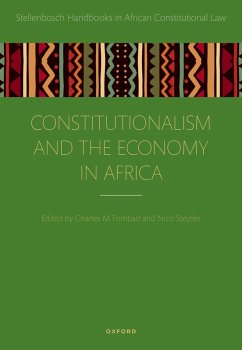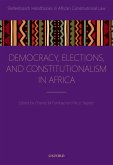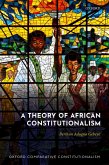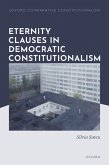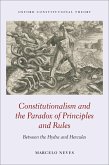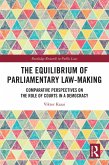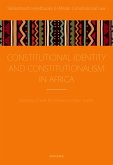Despite expectations that the celebrated second wave of constitutional democracy in the 1990s would facilitate economic development, Africa remains the continent with the highest level of poverty in the world. The fight against poverty hinges on a vibrant economy that creates jobs and income by generating enough revenue to enable the state to take pro-development measures. However, instead of the economic benefits that were supposed to accrue from the constitutional reforms of the last three decades (including entrenching a market economy), African economies remain weak, a situation that has been aggravated by the COVID-19 pandemic. By focusing on the relationship between constitutionalism and economic growth in Africa, this volume addresses five questions: (1) In the constitutional reforms of the 1990s and thereafter, did constitutions also reflect the shift towards a market economy, and if so, in what manner? (2) Given that agriculture and extractive industries are the main sources of state revenue in many African economies, how are matters of land and other natural resources dealt with constitutionally? (3) Where the market economy is captured in a constitution, what is the state's relationship to that economy: interventionist or laissez-faire, or somewhere in between? Have constitutions also established a 'social' state that provides its citizens with the basic elements of a dignified life? (4) In the process of constitution-making and implementation concerning the economy, what impact has globalization had on constitutionalism and economic growth in Africa? (5) Finally, how has the relationship between constitutionalism and economic growth played out in practice? Is there a symbiotic relationship? Has constitutionalism led (or may do so) to greater economic prosperity? Constitutionalism and the Economy in Africa offers a range of comprehensive arguments and case studies that will be of interest and use to academics, post-graduate students, judges, lawyers, economists, and policy makers involved in the economic role of the State, the impact of globalization, and the constitutional foundations for land and natural resources exploitation.
Dieser Download kann aus rechtlichen Gründen nur mit Rechnungsadresse in A, B, BG, CY, CZ, D, DK, EW, E, FIN, F, GR, HR, H, IRL, I, LT, L, LR, M, NL, PL, P, R, S, SLO, SK ausgeliefert werden.

